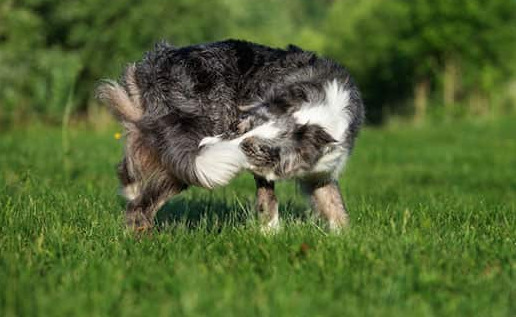Tail-chasing is a ubiquitous behavior that is seen in dogs around the world. As a dog parent, you probably have some questions about this peculiar behavior, most specifically: why is your dog chasing their tail?

Boredom
Your dog may be lacking mental stimulation, looking for attention, or simply trying to burn excess energy. Tail chasing allows them to entertain themselves for a little while and also allows them to expel some of that built up energy.
Solution: Increase their daily activity by adding more regular walks to their routine and bring in some physical and mental games.
Medical Problems

Some experts believe that tail chasing may even signal mental illness in dogs. It could be due to an underlying health condition, such as seizures, pain, an infection or even cancer.
Solution: Your veterinarian can help by looking through your dog’s medical history and performing a physical.
Anxiety

Repetitive behaviours like this can be comforting for dogs. When your dog is feeling that uncomfortable anticipation, like say before going to a vet or right before you leave to go to work, she may all of a sudden engage in repetitive behaviors such as chasing her tail to calm their nerves or feelings of anxiety.
Solution: Try to provide comfort with some friendly pets or extra snuggles.
Parasites
Dogs may also chase their tails when they are infested with intestinal parasites like tapeworms that migrate out the rectum.
Solution: If you notice that your dog is also scooting their behind, and experiencing diarrhea on top of their tail-chasing, then it would be worth a visit to the veterinarian to check for tapeworms or other common parasites.

For Fun
This is especially common in puppies, who are just beginning to explore the world and their bodies. They’re learning about their bodies and seeing what they can do.
Compulsive Disorders
This behavior can also be a symptom of an underlying compulsive disorder. The reasons for this compulsion might vary, including past trauma or lack of activity, but it is something to discuss with your pet’s veterinarian.
Occasional tail-chasing that’s not causing injury isn’t something owners need to worry about, but it could still indicate that you need to add more activity or brain games to your dog’s routine.
